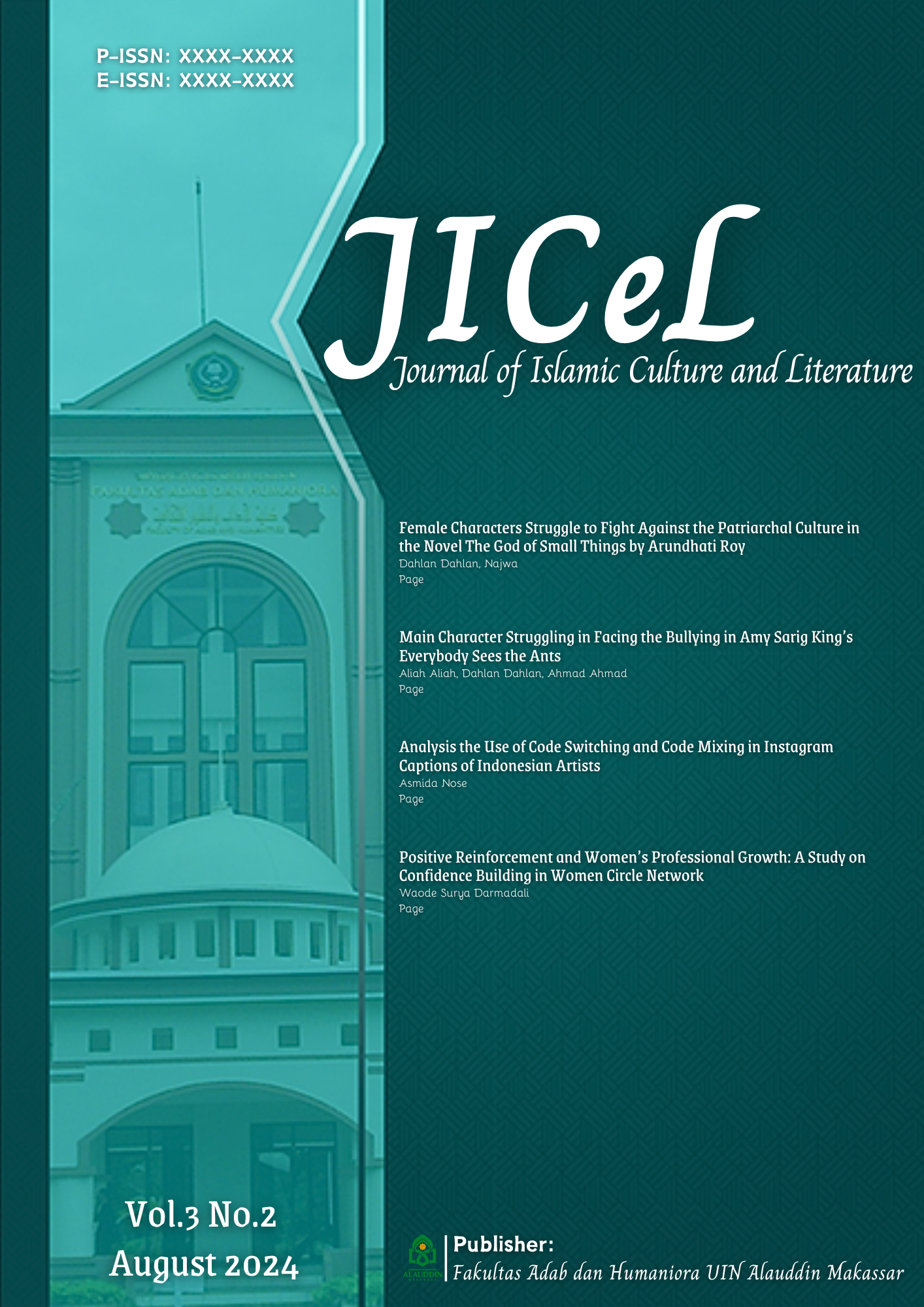POSITIVE REINFORCEMENT AND WOMEN’S PROFESSIONAL GROWTH: A STUDY ON CONFIDENCE BUILDING IN WOMEN CIRCLE NETWORK
Abstract
This study examines the impact of positive reinforcement on women’s confidence and linguistic development within Women Circle Networks, an initiative by Lingkar Perempuan Global in Makassar. Using Self-Determination Theory (SDT) as a framework, the research focuses on the psychological and linguistic mechanisms that drive women’s professional advancement, emphasizing autonomy, competence, and relatedness. A qualitative descriptive-analytical method was employed, with data collected through structured interviews and documentation from 20 young women aged 17 to 26. The analysis revealed that granting autonomy in language learning, such as allowing participants to choose communication scenarios aligned with their goals, significantly increased intrinsic motivation and reduced anxiety. Additionally, fostering a supportive community through mutual encouragement and constructive feedback enhanced linguistic confidence and perceived competence. The findings highlight the importance of integrating SDT principles in economic training programs to effectively empower women, recommending a balanced approach between flexibility and structured guidance.
Keywords: positive reinforcement, women’s professional development, Self-Determination Theory, , Women Circle Networks
Authors who publish with this journal agree to the following terms:
1) Authors retain copyright and grant the journal right of first publication with the work simultaneously licensed under a Creative Commons Attribution License that allows others to share the work with an acknowledgement of the work's authorship and initial publication in this journal.
2) Authors are able to enter into separate, additional contractual arrangements for the non-exclusive distribution of the journal's published version of the work (e.g., post it to an institutional repository or publish it in a book), with an acknowledgement of its initial publication in this journal.
3)Authors are permitted and encouraged to post their work online (e.g., in institutional repositories or on their website) prior to and during the submission process, as it can lead to productive exchanges, as well as earlier and greater citation of published work (See The Effect of Open Access).


